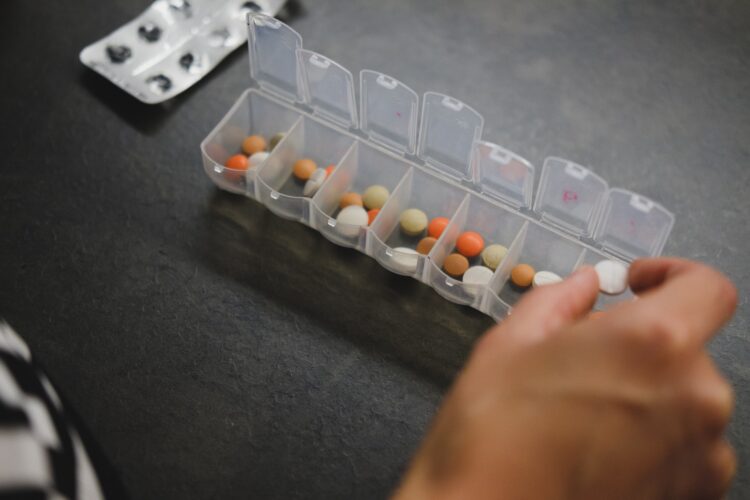Hormones are chemicals in your body that act as messengers between tissues. The endocrine system is responsible for the secretion of hormones and maintaining the levels of the hormones within normal levels. Hormones can act in the organ that produces them or can travel through the bloodstream to other organs where they act.
The effects of hormones will depend on the type of hormone and the target organ of the hormone. Hormones act through specific receptors present in the target organs. Once the hormones bind to their target organs, they regulate body functions such as growth, reproduction, and metabolism. They also contribute to the maintenance of homeostasis in your body. Homeostasis refers to the ability of the body to maintain a steady internal environment despite the changes in the external environment.

Levels of hormones in the body should always be within a specific range. Each hormone has a different range within which the levels should be. When the levels drop below the range, the hormone will no longer be able to regulate the body function it is responsible for regulating. For example, when the levels of the human growth hormone are below the normal range in a child, the child will experience retarded growth.
What hormones are replaced and why?
Hormone replacement therapy is a term commonly used for the hormone replacement that women receive to relieve symptoms of menopause. However, hormone replacement refers to the replacement of any hormone which has levels below the normal range. Hormone replacement is mainly done to raise the levels of hormones that are low in the body. To determine whether your hormone levels are within the normal range, your doctor will first do tests to check for the levels of your hormones and compare them to the normal range levels.
Hormone levels can be checked through blood tests, ultrasound, sperm count, or a thyroid scan. The type of test your doctor will recommend will depend on the type of hormone suspected to have levels lower than normal. The doctor will recommend the test depending on the symptoms you present with. For example, when a man has low levels of testosterone, he will present with symptoms like reduced sex drive, erectile dysfunction, fatigue, low levels of concentration, and reduced memory.
Some hormones that can be replaced include:

- Sex hormones like testosterone, estrogen, and progesterone.
- Human growth hormone.
- Thyroid hormone.
- Parathyroid hormone.
- Insulin.
Are there side effects of hormonal replacement therapy?

The side effects of hormone replacement therapy will depend on the type of hormone being replaced. The side effects of certain hormone replacement therapy are similar to symptoms of low levels of the hormone.
Below are some side effects of common hormones that are replaced:
- Testosterone
Common side effects include acne, edema or swelling of the ankles and feet, breast enlargement and tenderness, reduced prostate size, and increased risk of prostate cancer in susceptible individuals.
- Estrogen
Common side effects include headaches, breast enlargement and tenderness, bloating, and swelling of the feet.
- Human growth hormone (HGH)
In healthy adults, HGH can cause side effects such as breast enlargement in men, edema of the legs and arms, high risk of some types of cancers, type 2 diabetes, and carpal tunnel syndrome.
- Thyroid.
The side effects of thyroid replacement are due to high levels of thyroid hormone leading to excessive sweating, palpitations due to an increase in your heartbeat, anxiety, and loss of weight.
Most popular hormone replacement therapy in the USA

Five hormones are commonly replaced in the country.
Testosterone replacement therapy is meant for men who have levels of testosterone below 300 ng/dl. It is usually seen in older men above the age of 45. According to studies, out of 10 men aged 60 years and above, at least two receive testosterone replacement therapy. The therapy is aimed at raising levels of the hormone to a normal range of 300-1000 ng/dl. When the levels rise to the normal range, it alleviates symptoms like low sex drive and low sperm count that can cause infertility.
- Human growth hormone
Growth hormone replacement is recommended for people who have insufficient levels of growth hormone, both adults and children. The doses are different depending on the patient’s age; adults within the age of 30 to 40 will get a higher dose than children but a lower dose than those above 50 years. The aim of getting growth hormone replacement for a child is to promote body growth and enhance energy levels. In adults, it reduces symptoms of depression, fat around the abdomen, and reduces the risk of heart disease.
Make an appointment to our HGH therapy Clinic for a free consultation if you notice symptoms of HGH insufficiency such as fatigue, depression, low memory, and poor concentration. We will be able to test your levels of growth hormone and work with you until the levels are restored to the normal.
- Thyroid hormone
Thyroid hormone replacement is recommended for people who have hypothyroidism, a condition in which the levels of thyroid hormone are low. It can be used to control the development of goiter and to increase levels of the hormone after surgical removal of the thyroid.
- Estrogen
Estrogen replacement therapy is usually prescribed to women on menopause, usually above the age of 45. Women on menopause experience symptoms like hot flashes, night sweats, vaginal dryness, fatigue, low memory, and have bones that fracture easily. Estrogen replacement aims at relieving these symptoms.
- Progesterone
Progesterone hormone replacement therapy is usually given to women receiving estrogen therapy. Progesterone therapy aims at reducing the risk of cervical cancer and vaginal bleeding that can be caused by estrogen therapy.
 Hi Boox Popular Magazine 2024
Hi Boox Popular Magazine 2024



